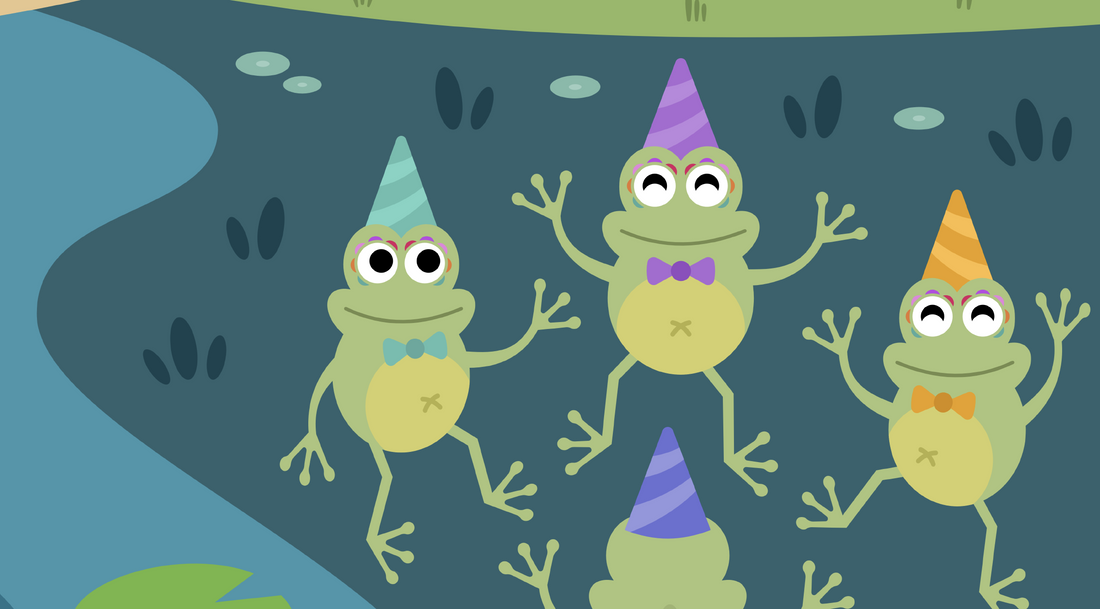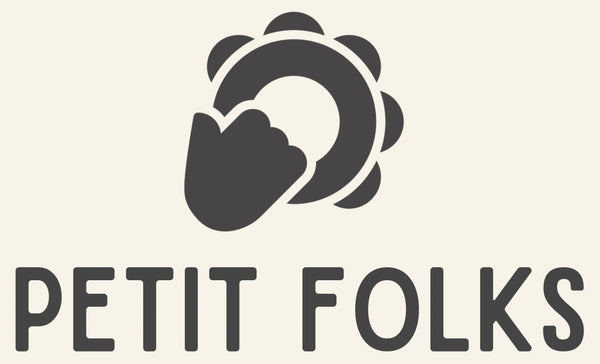
How Music Enhances Linguistic and Holistic Development in Children
Share
The Melodic Pathway
From the moment children enter this world, they are enveloped in a symphony of sounds and melodies. It is through these harmonious vibrations that a remarkable journey of language development and holistic growth begins. In this article, we explore the profound impact of music on the linguistic capabilities and overall development of children from infancy to six years old. Discover the magical connection between music and language and how it paves the way for a holistic and enriching childhood.
Language Development
Music serves as a powerful catalyst for language development in young children. Here's how:
- Phonological Awareness: Listening to music and singing songs exposes children to various sounds, rhythms, and patterns. This fosters phonological awareness, enabling them to distinguish and manipulate different sounds within words, which is vital for language acquisition.
- Vocabulary Expansion: Songs often introduce new words and concepts in a memorable and engaging manner. Through music, children effortlessly expand their vocabulary, as lyrics provide context and repetition that solidify word meanings.
- Sentence Structure and Syntax: Music naturally incorporates sentence structures and syntactic patterns. Singing along to songs exposes children to grammatically correct sentences, helping them grasp language structures intuitively.
- Pronunciation and Intonation: The melodic nature of music encourages children to imitate and practice different sounds, aiding in the development of accurate pronunciation and intonation. Singing allows children to experiment with their voices and refine their articulation skills.
Cognitive Development
Beyond language acquisition, music stimulates cognitive development in various ways:
- Memory and Recall: Learning and memorizing song lyrics exercises children's memory and enhances their ability to recall information. This skill extends to other areas of learning, contributing to improved academic performance.
- Cognitive Skills: Engaging with music promotes cognitive skills such as attention, concentration, problem-solving, and critical thinking. Children learn to follow rhythms, anticipate changes in melodies, and understand the structure of songs, fostering their cognitive abilities.
- Spatial Reasoning: Playing musical instruments, exploring different sounds, and moving to the rhythm of music enhances spatial reasoning skills, which are crucial for mathematical and scientific thinking.
Emotional and Social Development
Music has a profound impact on emotional and social development:
- Emotional Expression: Through music, children explore and express their emotions. They learn to identify and convey feelings, develop empathy, and find solace in the therapeutic power of melodies.
- Social Bonds: Participating in musical activities with peers promotes social interaction, cooperation, and teamwork. Collaborative singing, dancing, and playing instruments foster a sense of unity, empathy, and shared joy among children.
- Confidence and Self-Expression: Performing and creating music empowers children to showcase their talents, boosting their self-esteem and confidence. Music provides a safe and expressive outlet for children to communicate and share their unique voices.
Physical Development
Engaging with music promotes physical development through movement and coordination:
- Gross Motor Skills: Dancing and moving to the rhythm of music enhance gross motor skills, balance, and coordination. Children develop strength, control, and body awareness through rhythmic movements.
- Fine Motor Skills: Playing musical instruments requires intricate finger movements, promoting fine motor skills, dexterity, and hand-eye coordination.
Music weaves a remarkable tapestry in the developmental journey of children from zero to six years old. It acts as a powerful tool for linguistic development, enhancing vocabulary, syntax, pronunciation, and intonation. Beyond language, music enriches cognitive, emotional, social, and physical development, fostering holistic growth. By incorporating music into children's lives from an early age, parents and caregivers lay the foundation for a harmonious and comprehensive childhood
Petit Folks: A Musical Companion for Home and School
Petit Folks, a wonderful musical resource, is designed to bring the power of music into the lives of children. With its engaging and captivating melodies and drawings, Petit Folks serves as an excellent tool to promote the use of music both at home and in schools. Parents can incorporate Petit Folks into their daily routines, creating joyful musical experiences that support their child's language development, cognitive growth, and emotional expression. In schools, educators can utilize Petit Folks to enhance language lessons, stimulate creativity, and foster a love for music among children. By embracing Petit Folks, both parents and educators can create a vibrant musical environment that nurtures children's linguistic capabilities and holistic development. Together, let us embark on this melodic journey with Petit Folks, unlocking the incredible potential of music in the lives of children.
